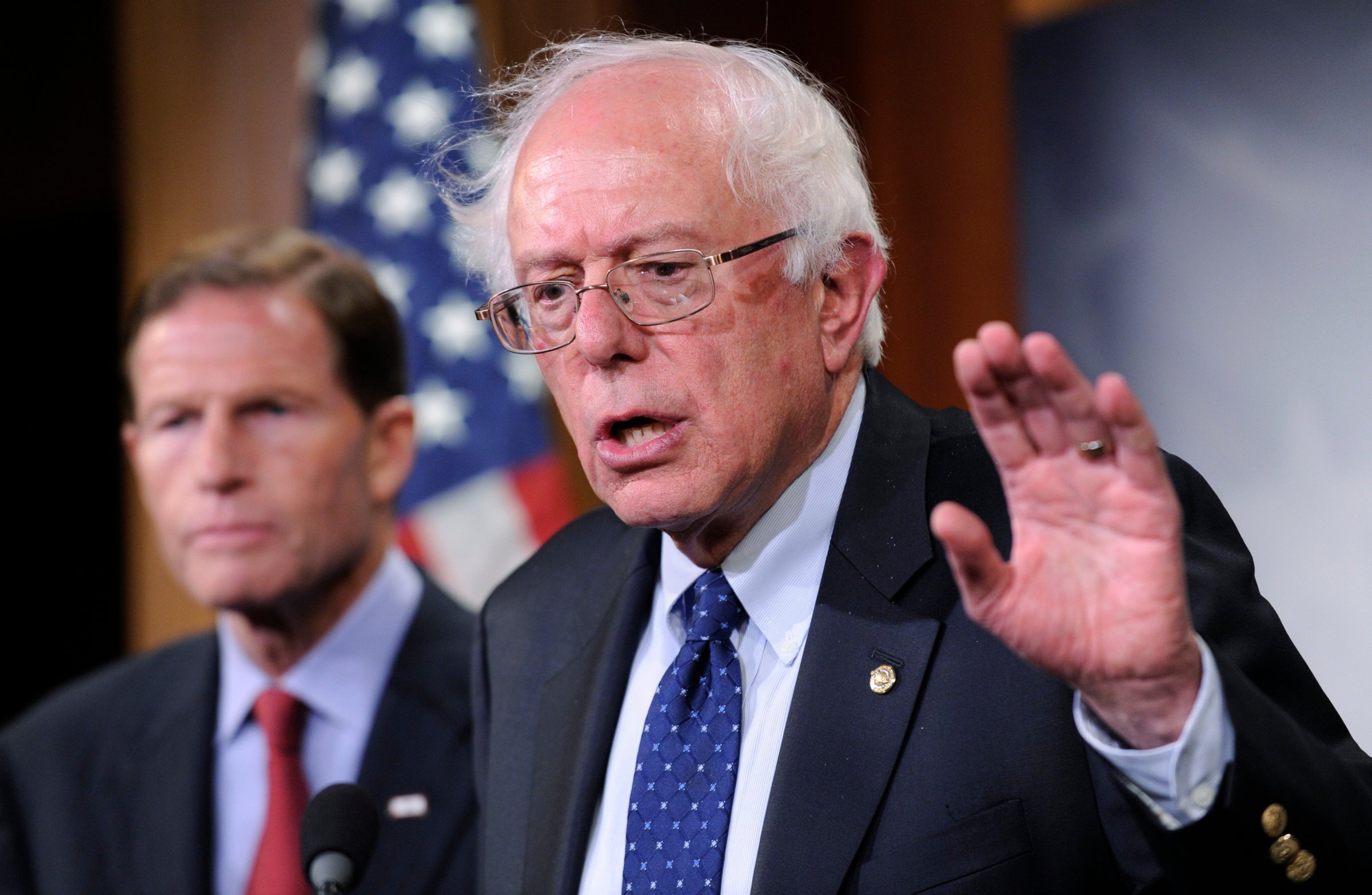
Updated at 3:55 p.m.
The two chief congressional negotiators to reform the scandal-plagued Veteran Affairs Department have struck a $17 billion deal to address long patient wait times and dishonest government employees who doctored records to make their hospitals appear more efficient.
The bill includes $10 billion to allow veteran patients to receive non-VA health care and another $5 billion to hire more doctors and health care practitioners. The cost of the bill is offset by $5 billion in cuts to the department elsewhere, said Vermont Independent Sen. Bernie Sanders Monday.
The bill is a compromise between two proposals created last week by Florida Republican Rep. Jeff Miller and Sanders, which they said would have cost $10 and $25 billion, respectively. Interim Veterans Affairs Secretary Sloan Gibson requested $17.6 billion two weeks ago to hire 1,500 doctors and build new clinics, among other things.
Sanders, the Senate Veterans’ Affairs Committee Chairman, said that the bill was “far from what I would have written if I had to do it alone” and that “God knows” there is more work to be done. But both he and Miller, the House Veterans’ Affairs Committee Chairman, said they support the bill and expect it to pass this week before members leave for a five-week recess.
The deal uses a variety of methods to speed up patient service. If the VA doesn’t grant an appointment to a patient within the current wait time goal of 14 days, or if a patient resides more than 40 miles from a VA facility, the veteran can use non-VA care, including from private health care providers that participate in Medicare, and Department of Defense health centers.
The bill would also allow the VA Secretary greater authority to fire employees, who would have three weeks without pay before an appeals board would be required to make its verdict. The new power will aid former Procter & Gamble CEO Robert McDonald, whose confirmation to the position is pending.
Miller and Sanders noted that the cost of the Senate and House bills that passed overwhelmingly in June made negotiations difficult. Each of those would have cost at least $35 billion, according to the Congressional Budget Office.
The Veteran Affairs Department has been rocked by reports of patients dying while on months-long waiting lists. Secretary Eric Shinseki resigned in May after an inspector-general report signaled a widespread practice of employees falsifying records to hide slow response times.
A deal had seemed unlikely Thursday, when Sanders said on the Senate floor that he wouldn’t be shoehorned to pass the Republican’s $10 billion proposal. “Any sixth-grader in a school of the United States understands, this is not negotiation,” he said. Miller then released a statement saying that it would be “impossible” to forge a bill if Senate Democrats refused to participate in conference meetings. With only a week left before the August recess, media outlets proclaimed that negotiations had “imploded,” “ground to a halt” and were “on the verge of collapse.”
But these squabbles may have actually pushed the negotiations further along, a congressional aide with inside knowledge told TIME. Asked Friday if the previous day’s press coverage was overblown, the aide said, “Maybe a little, but we all gave everyone plenty of fodder and it could be that some of the drama, intentionally or not, helps move things along.”
More Must-Reads from TIME
- Donald Trump Is TIME's 2024 Person of the Year
- Why We Chose Trump as Person of the Year
- Is Intermittent Fasting Good or Bad for You?
- The 100 Must-Read Books of 2024
- The 20 Best Christmas TV Episodes
- Column: If Optimism Feels Ridiculous Now, Try Hope
- The Future of Climate Action Is Trade Policy
- Merle Bombardieri Is Helping People Make the Baby Decision
Contact us at letters@time.com